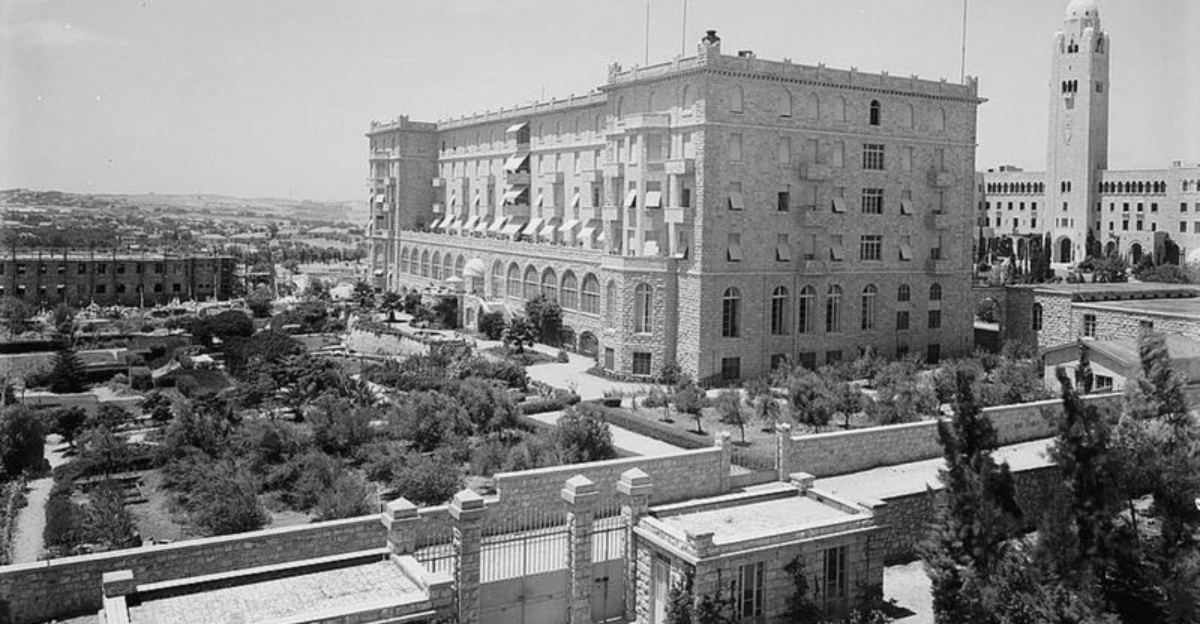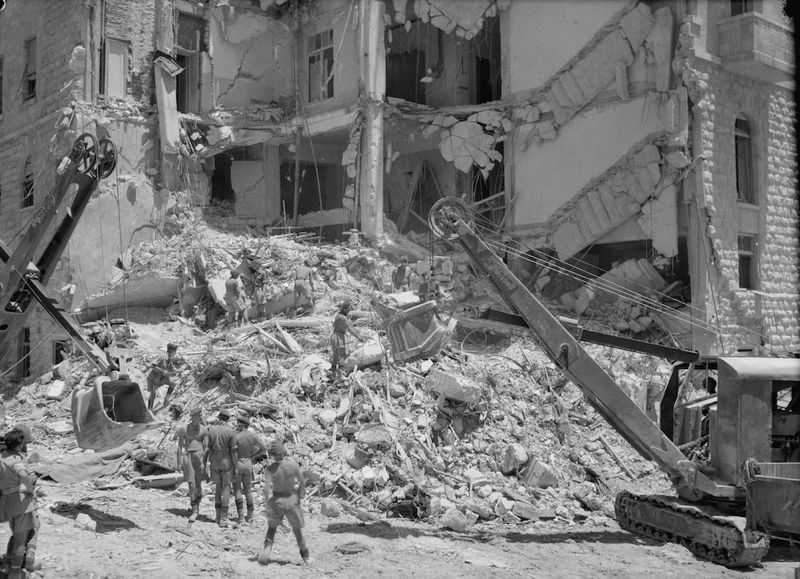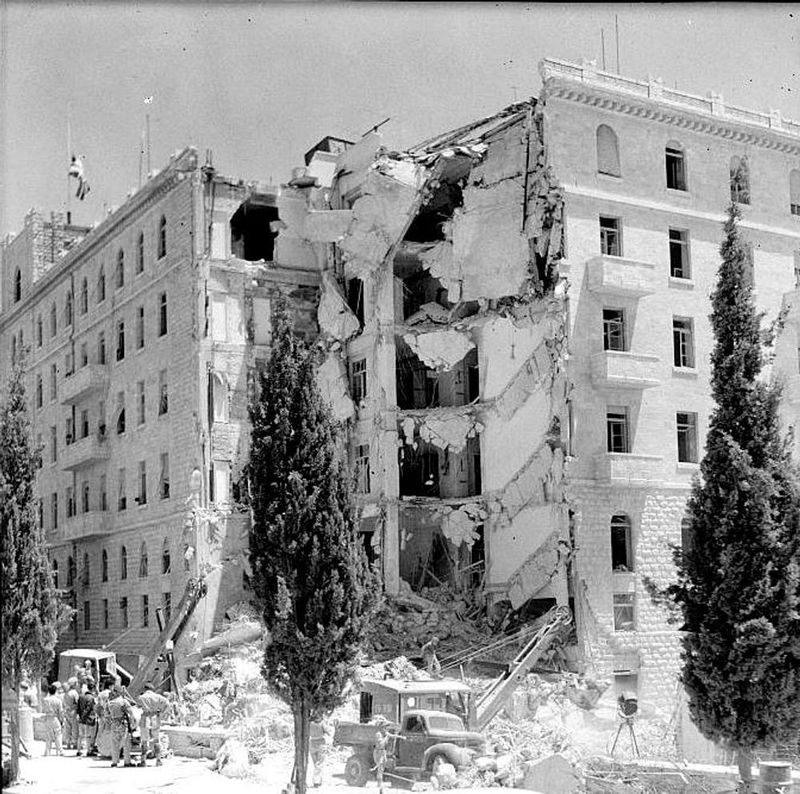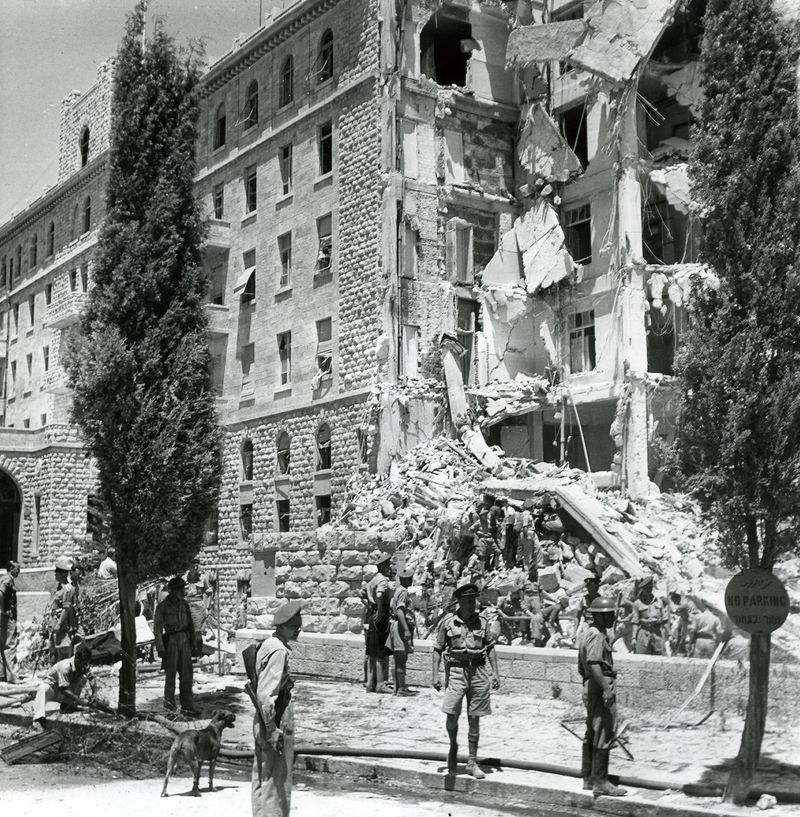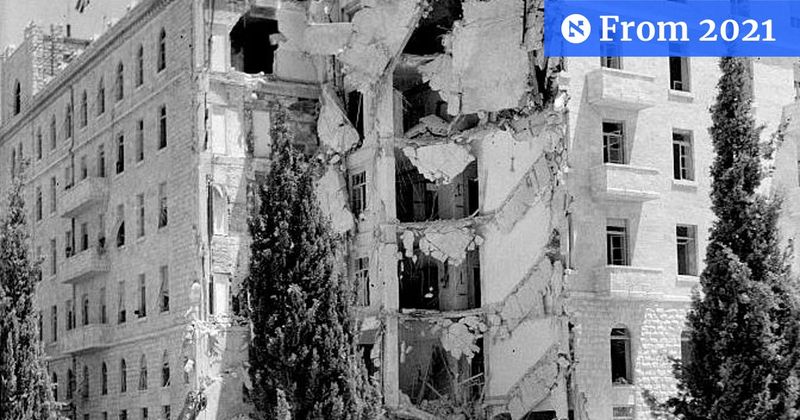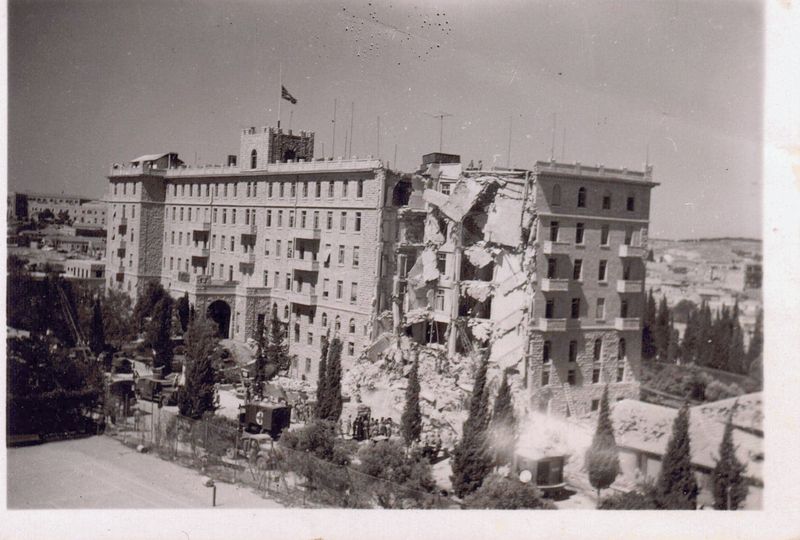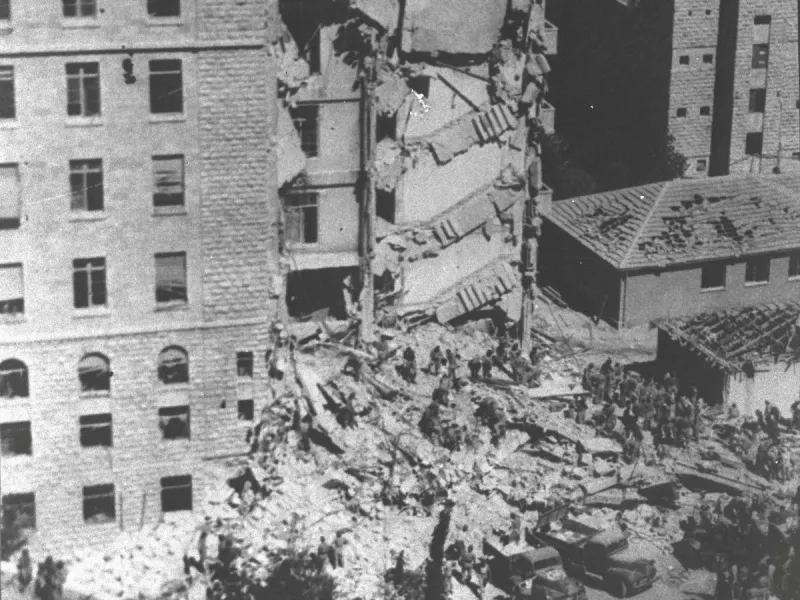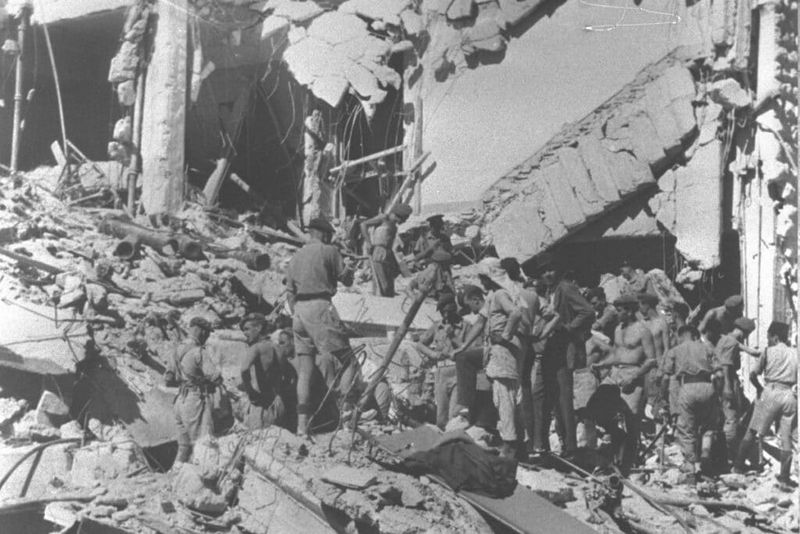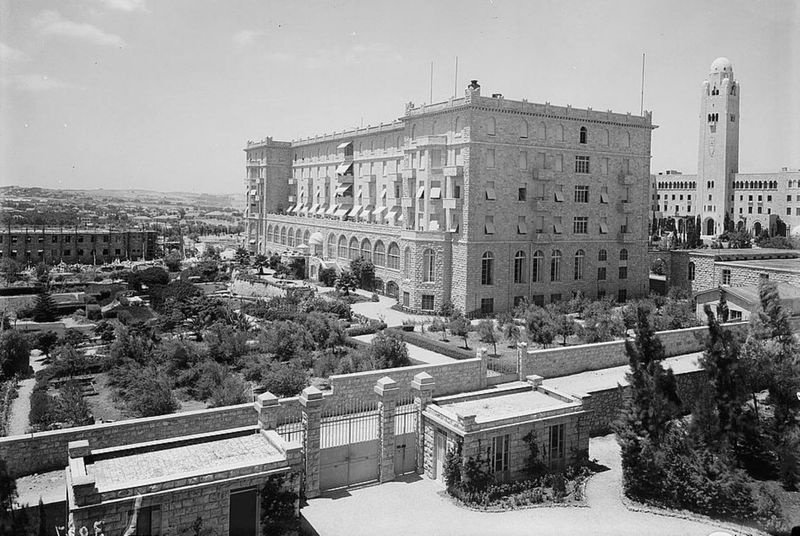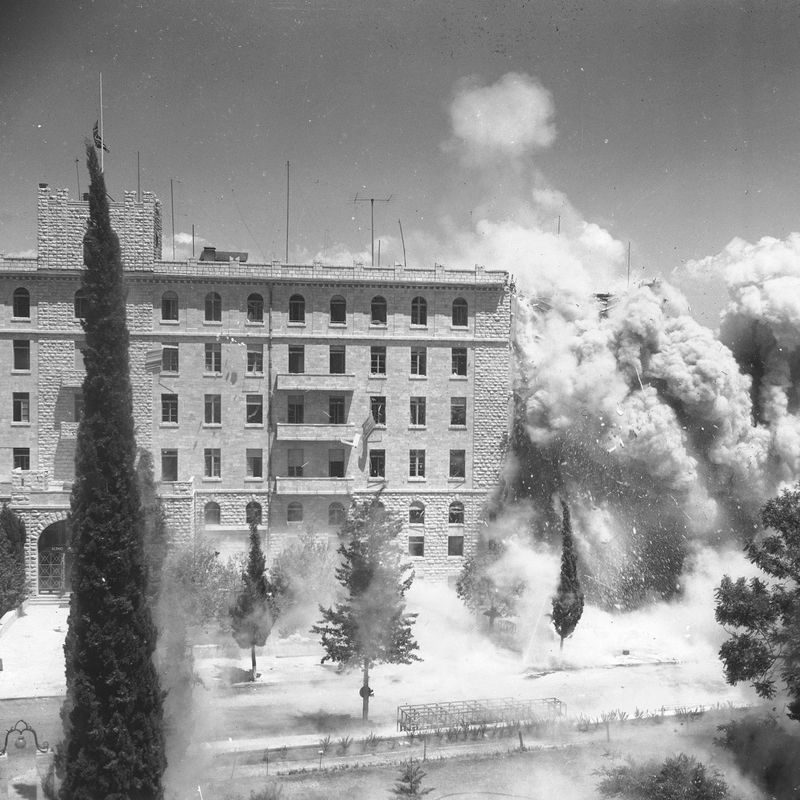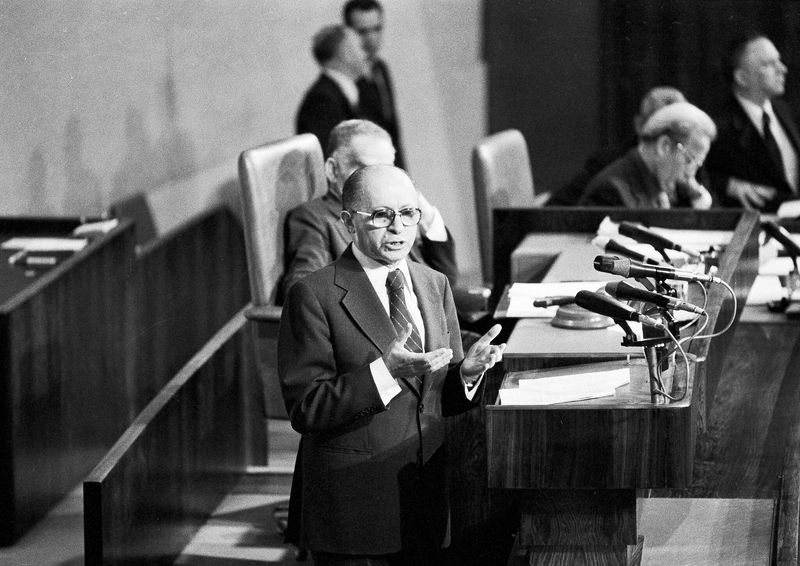On July 22, 1946, a massive explosion rocked Jerusalem when the King David Hotel was bombed.
This attack targeted the British administrative headquarters during a tense period in pre-Israel Palestine.
While some basic facts appear in history books, many crucial details about this pivotal event remain obscure to most people today.
1. Deadly Toll: The Bombing’s Devastating Human Cost
The King David Hotel bombing claimed 91 lives, making it the deadliest attack against British imperial forces at that time. The victims came from diverse backgrounds – 28 British citizens, 41 Arabs, 17 Jews, and 5 others from various nationalities.
Rescue workers spent days digging through rubble, sometimes hearing trapped survivors who couldn’t be reached in time. Many victims were ordinary office workers, not military personnel.
Beyond the death toll, over 40 people suffered serious injuries. The psychological impact rippled through Jerusalem’s communities, shattering the already fragile coexistence between different groups.
2. Masterminds Behind the Attack: Irgun’s Bold Operation
Irgun Zvai Leumi operated under Menachem Begin’s leadership, employing guerrilla tactics against British rule. Begin personally approved the bombing operation, code-named “Chick,” after meticulous planning by Irgun commanders.
Surprisingly, many Irgun members involved later became prominent Israeli politicians and military leaders. The operation team included approximately 15-20 operatives divided into assault teams, bomb placers, and lookouts.
Begin himself remained in hiding during and after the attack, communicating through encrypted messages. He would later defend this action throughout his political career, even after becoming Israel’s Prime Minister in 1977.
3. Strategic Target: Why the British Headquarters Was Chosen
The British administration had commandeered the hotel’s entire southern wing in 1938, transforming luxurious guest rooms into military offices. Intelligence documents, operational plans, and communication equipment filled what was once Palestine’s most prestigious hotel.
Most critically, the building housed the Criminal Investigation Division, which had recently seized documents implicating Jewish Agency leaders in resistance activities. Irgun hoped to destroy this evidence and cripple British intelligence operations.
The hotel’s central location in Jerusalem made it both a practical and symbolic target, representing British colonial authority in the heart of the contested city.
4. Milk Can Deception: The Ingenious Smuggling Method
The explosives entered the hotel through an audacious ruse. Irgun operatives disguised themselves as Arab dairy workers, complete with traditional clothing and accents. They wheeled seven milk churns containing 350 kilograms of explosives through the hotel’s service entrance.
Guards rarely inspected deliveries thoroughly, allowing the team to place the devices in the basement kitchen. The milk churns themselves were modified with special compartments to hide timing devices.
This smuggling technique became an infamous hallmark of Irgun operations. Similar milk churn bombs were later used in attacks on British targets throughout Palestine, creating a climate of fear among colonial authorities.
5. Disputed Warnings: The Controversial Phone Calls
Thirty minutes before detonation, Irgun operatives claim they made three warning calls – to the hotel itself, to the French Consulate, and to the Palestine Post newspaper. They allegedly used a predetermined code phrase: “This is the Hebrew resistance calling. We have placed bombs in the King David Hotel. Evacuate immediately.”
British officials maintained these warnings were either too vague or came too late. Some historians suggest the hotel staff dismissed the threat as a hoax.
A surviving telephone operator later testified she received a warning call but was instructed by superiors not to evacuate. This remains one of the bombing’s most contested aspects.
6. Structural Collapse: Engineering Aspects of the Destruction
The explosives were strategically placed against load-bearing columns in the hotel basement. When detonated, they created a catastrophic progressive collapse that pancaked all six floors of the southern wing.
The hotel’s stone façade, ironically built to showcase British imperial grandeur, created deadly projectiles that struck people blocks away. Architectural plans later revealed the bombers had detailed knowledge of the building’s structural vulnerabilities.
Fire department records show the subsequent blaze burned for nearly five hours. The building’s remains were so unstable that some bodies weren’t recovered for weeks, while parts of the structure required complete demolition before reconstruction could begin.
7. Jewish Agency’s Double Game: Public Condemnation, Private Knowledge
David Ben-Gurion, head of the Jewish Agency, publicly denounced the bombing as a “heinous crime.” Behind closed doors, however, declassified documents reveal Agency leaders had intelligence about increasing Irgun operations against British targets.
The Agency’s military wing, Haganah, had previously collaborated with Irgun in joint operations known as the “Hebrew Resistance Movement.” This alliance fractured immediately after the bombing, with Haganah leaders fearing British reprisals.
Agency records show emergency meetings held in the bombing’s aftermath where they debated turning in Irgun members to British authorities. This internal conflict highlighted the growing divisions within the Zionist movement about appropriate resistance tactics.
8. Diplomatic Fallout: How the Bombing Changed British-Jewish Relations
The bombing triggered Operation Shark, a massive British military response that included cordon-and-search operations throughout Jerusalem. Over 120,000 troops were mobilized – the largest British military operation between World War II and the Korean War.
Previously sympathetic British officials hardened their positions against Jewish settlement. Foreign Office documents reveal the bombing directly influenced Britain’s decision to limit Jewish immigration at a crucial moment when Holocaust survivors sought refuge.
American-British relations also suffered, as President Truman privately supported Jewish statehood while British officials pressed for continued restrictions. The bombing effectively ended any possibility of peaceful British withdrawal from Palestine.
9. Hastened British Departure: The Empire’s Accelerated Exit
The bombing accelerated what historians now call “imperial fatigue” among British leadership. Cabinet minutes from August 1946 show the Treasury balking at Palestine’s escalating security costs – over £40 million annually, equivalent to billions today.
Foreign Secretary Ernest Bevin, initially determined to maintain British presence, privately admitted the bombing had made Palestine “ungovernable.” Military intelligence reports warned more attacks were inevitable.
By February 1947, just seven months after the bombing, Britain formally announced its intention to surrender the Palestine Mandate to the United Nations. This critical decision set in motion the partition plan that would eventually create Israel in 1948.
10. Begin’s Unapologetic Stance: Defending the Attack for Decades
Menachem Begin refused to express remorse for the bombing throughout his lifetime. In his autobiography “The Revolt,” he wrote: “We were at war with Britain and we had every right to use military means.” This justification remained consistent even during his years as Israel’s Prime Minister (1977-1983).
During a controversial 1983 visit to Britain, journalists repeatedly questioned Begin about the bombing. He famously responded: “I fought, therefore I am.”
Begin maintained until his death that warnings were given and casualties were unintentional. His unwavering position on the bombing reflects the complex moral questions surrounding revolutionary violence in nation-building.
